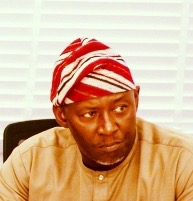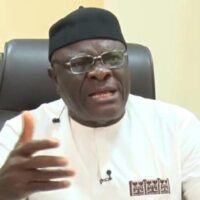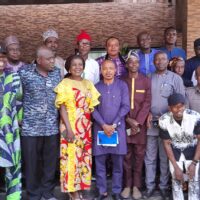So far, the year 2024 has proven to be a tumultuous period for Nigeria, as the Bola Tinubu administration grapples with mounting economic challenges. Inflation rates have soared to unprecedented levels, creating a landscape of financial distress for the average Nigerian.
The immediate impact of the administration’s policies is profound to say the least. Rising inflation has led to skyrocketing prices of essential goods and services, making it increasingly difficult for families to meet their basic needs. The price of petrol continues to surge, coupled with limited availability, causing transportation costs to rise, which in turn affects the cost of food and other commodities serving only to enhance a growing sentiment of despair among citizens. The labour market has also not been spared as the government’s economic policies seem to be designed to further exacerbate unemployment rates. With the high cost of doing business and diminishing consumer purchasing power, many businesses are forced to downsize or shut their doors entirely. This has not only increased the number of jobless individuals in recent months but also sadly contributes to a rising sense of hopelessness among the youth, who see dwindling opportunities in their own country.
The Tinubu Administration’s adamant push for policies that seem to be out of touch with the realities faced by Nigerians has given way to social unrest as is evident by recent protests across the country where citizens, irked by the administration’s perceived lack of empathy and understanding to their plight, wereforced take to the streets to voice their dissatisfaction. It is unfortunate that the government’s major response has been to apply heavy-handed tactics in response to dissent whilst also accusing the opposition of playing politics on the back of these protests ; an action which has further alienated the populace ultimatelycreating a cycle of distrust and resentment that could have dire implications for national stability now and in the future.
Compounding these challenges is the troubling phenomenon of the president’s supporters, who continue to push for and support policies that many citizens find detrimental, even as they too are caught in the web of suffering. This unwavering support, often rooted in political allegiance rather than the welfare of the populace, highlights a disconnect between the administration and the very people it claims to represent. Many supporters, despite their own struggles, appear to prioritize loyalty over the urgent need for change be it in its previous or ‘renewed’ form as the case may be. This blind allegiance which boarders on sycophancy has not only stifled constructive criticism but also perpetuates the government’s erroneous belief that its policies are effective. Now that the country’s economic situation has become more unbearable combined with the Tinubu Administrations ‘know it all’ posture, It is crucial for Nigerians—supporters and critics alike—to come together and voice the truth about the state of the nation as several well-meaning Nigerians have been compelled by their conscience to do in recent months. It is my strong belief that continued and collective acknowledgment of the prevailing hardships can serve as a catalyst for meaningful dialogue and policy reform, ultimately benefiting all citizens.
Looking beyond the immediate repercussions, the long-term effects of the Tinubuadministration’s policies are equally concerning. Prolonged economic hardship can lead to a decrease in human capital development. As families struggle to afford food, education, healthcare and other basics, the potential for future generations to rise above their circumstances diminishes. A poorly educated and unhealthy populace poses a significant threat to Nigeria’s economic growth and competitiveness on the global stage. We are all witnesses to how the continuous economic strain has catalyzed mass emigration with many Nigerians, particularly the educated and skilled workforce, becoming increasingly more inclined to leaving the country in search of better opportunities abroad. This brain drain not only deprives Nigeria of its best talent but also hinders innovation and progress, leaving the nation in a very precarious position.

The government’s seeming failure to heed the advice of experts and the cries of its citizens signifies a broader issue of governance. When leaders are disconnected from the realities faced by their constituents, it breeds an environment ripe for corruption and mismanagement. This can lead to a lack of accountability and transparency in government dealings, further entrenching the cycle of poverty and disenfranchisement. The Tinubu Administration’s persistent refusal to address the economic challenges facing Nigerians is a ticking time bomb. The immediate consequences are already evident in rising inflation, increased unemployment, and social unrest, while the remote consequences threaten long-term national stability and growth. Unless the government shifts its focus to genuinely address the needs of its citizens and embrace informed economic strategies, Nigeria risks descending into deeper economic despair. It is therefore imperative for all Nigerians, regardless of political affiliation, to unite and speak the truth about the nation’s dire circumstances. Only through collective action and honest discourse can the country hope to forge a path toward recovery and prosperity. The voices of the people must not be ignored; their plight deserves urgent attention and action.
Hon. Olu S.A. Adekunle
Public Affairs/Policy Analyst.





